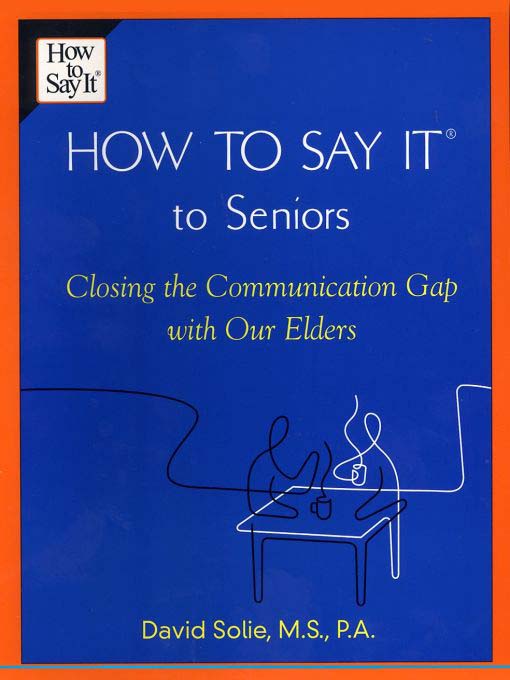
How to Say It to Seniors
Closing the Communication Gap with Our Elders
- اطلاعات
- نقد و بررسی
- دیدگاه کاربران
نقد و بررسی

Starred review from September 15, 2004
As the average age of Americans slowly rises, libraries will need responsive collections. Herrick (Boise: A Global Community in the West) celebrates the collective joys and hard-learned wisdom of femininity in lush, poetic prose that often borders on precious. Although confident ("I am nothing but adrenaline and exuberance"), she does not provide how-to. The final chapter should have come first, as it explains that Herrick can't have children. Bolton used to write jokes for comedic greats Bob Hope and Phyllis Diller; her riffs on life for seniors wouldn't be out of place in the Catskills. Though packed with funny quips and one-liners (e.g., use menopausal hot flashes as an energy source), her book mainly consists of monologs, the last couple of which grow mawkish. On the whole, however, this favorably recalls Erma Bombeck's irreverence. Mayne, the author of several thrillers, has collected the autobiographies of five women who came of age in the 1950s and 1960s. Some were particularly abused, and the flood of misery that their stories unleashes only serves to document how awful life could be for women at that time. Unfortunately, themes of life lessons learned are lost in the mire of broken love stories, childhood horrors, and drunken, philandering husbands. Sewell's anthology is more incisive by comparison, revealing how 27 middle-aged women writers just "be" (as opposed to how they once were and what they took for that). While some of the essays pack a punch, most tend toward mundane, e.g., Dorothy Walls's poignant essay about masking beauty lines behind plastic surgery. Maturity has netted these authors grace, courage, and "meaning deeper than skin," but their messages are all too familiar. There is no lack of feminista-writers-on-writing books, including Jocelyn Burrell's compilation Word: On Being a (Woman) Writer. Geriatric psychologist Solie does an excellent job of debunking the myth that our elders are merely older versions of ourselves. Seniors are undergoing a developmental transition akin to adolescence; practical, effective communication methods are presented to help minimize generational conflict. This, in turn, paves the way for the important work of advocating for (instead of marginalizing) elders, who face a daily struggle for control. Though an age group isn't numerically defined (it's more a life stage), this makes an important contribution to our cultural understanding of "seniors" and is highly recommended for public libraries and professional collections. Bolton's, Herrick's, and Sewell's books are optional; Mayne's is not recommended.
Copyright 2004 Library Journal, LLC Used with permission.




دیدگاه کاربران